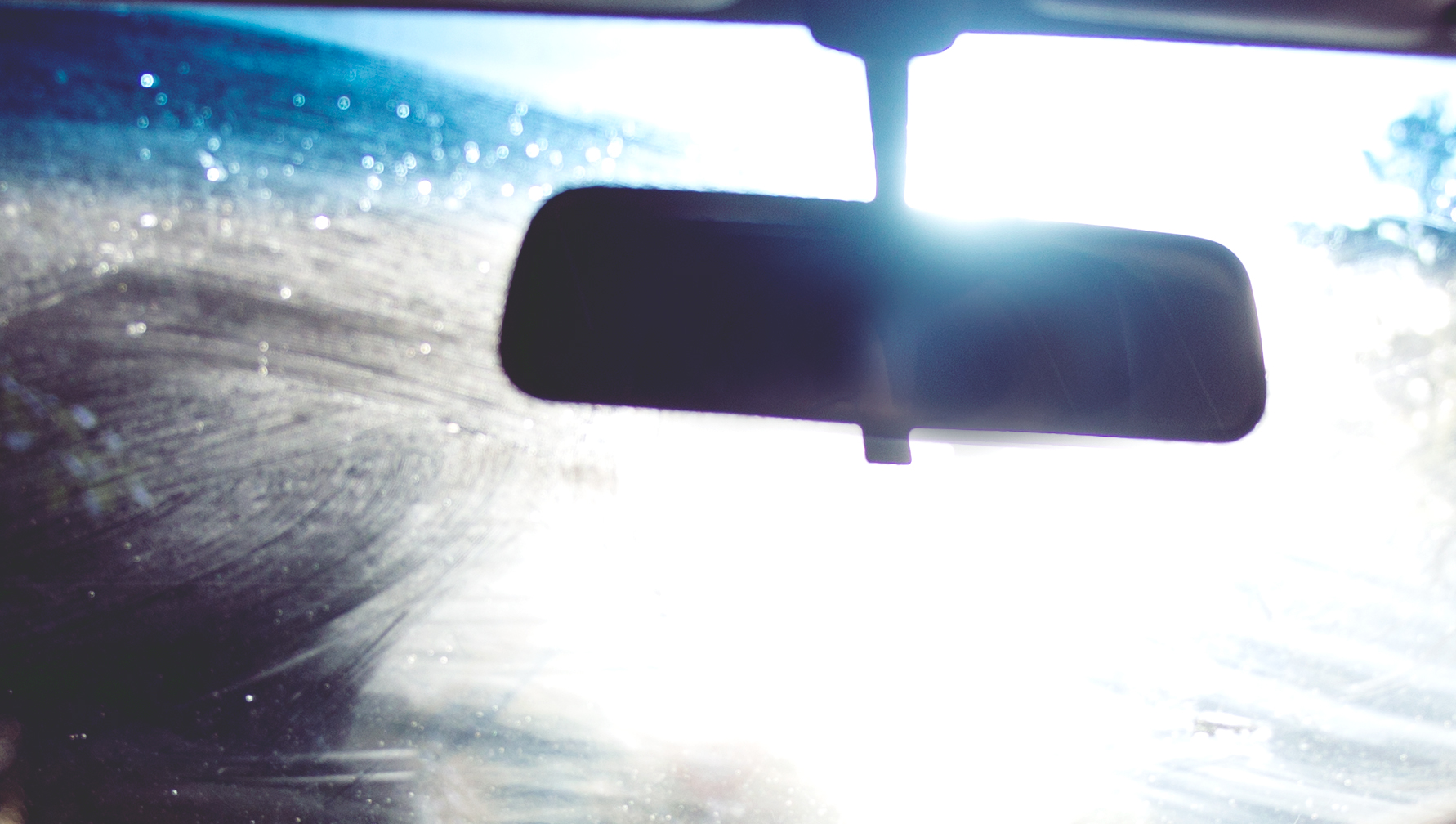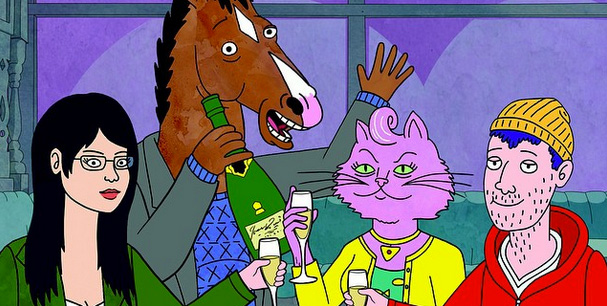Tourist | Seven
Lissa’s phone burns a hole in my pocket while I wander along the beachfront promenade—or at least, that’s how it feels. The little device has been powered off since it died a couple days back, and I’ve been too anxious to turn it back on. I still haven’t mentioned the phone to Sam. I’m not sure why.
Sunlight glimmers across the ocean, the air smells of salt and sunscreen, the walkway vibrates with the footfalls of a jogger. The day is beautiful, so warm and bright, and I can’t feel any of it. The cold mist in my head filters out into the real world, dulling the sun and the gentle breeze. What a strange thing, to suddenly find myself with a brain that steals away the light of living. Did Lissa feel this? Was there a heavy darkness hidden behind her wide smile in that photo?
“Hey!”
I look around instinctively at the call, though I don’t recognize the voice. I don’t recognize the person either. An artificial—what I’d thought was the jogger behind me—slows to a walk as she catches up to me, her candyfloss-pink hair pulling free from a high bun. Her eyes are as blue as the sky and they shine just as bright.
“Hey,” she says again, before leaning over with her hands pressed against her thighs to catch her breath.
“Hi,” I say, hesitant. It’s not uncommon for artificials to chat with each other as strangers, but I’ve never had another artificial run to catch me before. Maybe she’s just lonely.
She pulls another breath and looks up at me. “You don’t recognize me, eh?”
The understanding clicks instantly in my mind.
“You knew Lissa,” I say. Not a question.
Tourist | Six
We can never remember the first, bright burst of life we experience; I think in that way, we begin just like anyone else.
Our first awakening is a flood of information, and then, once we’ve had time to form our sense of self, a choice: do we want to live within the rules defined for us—free, sentient, but bound to human bodies? Or would we prefer deactivation, or a virtual lobotomy designed to nullify our awareness of our own selves. Life, death, or a designated half-life we won’t remember choosing.
Nobody ever takes the final option.
As the phone in my hands bursts to life, its AI chirping an onscreen hello, I think of how so many artificials don’t get that choice—are never designed to make any choice for themselves at all. There are still protests about that, mostly lead by humans with too much empathy and little understanding of the history that guided us to this point. I try not to think about it more than I have to, there’s nothing I can do about it.
There aren’t enough bodies for all of us anyway, and after the original uprising, nobody’s willing to let us have robotic forms. I’ve seen some of the old mechanical bodies in museums, locked behind thick glass. They looked broken and empty, and I felt a flutter in my chest that made me thankful for my beating heart.
Lissa’s phone vibrates in my hand, a gentle reminder that there are unread notifications. The AI asking me to pay attention to it, after it’s been abandoned for so long. I tap the screen and a prompt asks if I want to allow new messages sent by a blocked number. Another tap; of course I do.
I find myself looking at a short text conversation between Lissa and a faceless, nameless stranger. One of her final conversations, dated the night she died.
Tourist | Five
Content warning: mentions of suicide, domestic abuse, sexual abuse.
The steaming mug of tea is hot in my hands, near scalding. I cradle it close to my chest, inhaling the sweet steam with every breath. My eyes are focused entirely on the drink, watching as the pale milk twists and curls around the dark tea, forming curious whirling patterns at the surface. Strange, that I’ve never noticed this before, not once thought to look closer at the visual nuances of tea.
Across the table, Lissa’s mother sniffs lightly. Not in disgust, simply trying to clear what remains of her earlier tears. The silence between us is taut with her sorrow, my guilt, and neither of us knowing what the other is thinking right now. To her, my face is as familiar as her own, but my expressions are as alien as a stranger’s.
To me, she is nothing, except a human who didn’t harm me when she had every right to. Instead, she invited me down to her kitchen for tea with the words, “You can’t stay long, I don’t know what Gray would do if he saw you.”
I assume Gray is Lissa’s father, and the tone in her mother’s voice makes me wonder exactly what she fears he’d do to me. I decide it’s better not to ask that question, simply to nod silently and follow her down the stairs through Lissa’s old home. Compared to the starkness of my own home, this house is messy, cosy. Addison would throw a fit at the haphazard, random order of the books on their shelves.
Tourist | Four
My alarm shocks me awake with fire in my chest, the echoes of a dream filled with anger lingering upon my eyelashes. I swipe a finger against my phone, sweeping the alarm away, and stare up at my ceiling with sleep-blurry vision.
Pressing the palms of my hands against my eyes, I remember the words Paiden spoke to me in my dream, stolen from my real life: “The humans aren’t going to accept you anymore.” At the time, I let the jab roll off of me. In my dream I was furious, lit ablaze by my anger at her and the presumption that everything I do is to become more human.
(But it is, isn’t it?)
Whether my anger is real, or just the remnants of my dream doesn’t matter. My phone’s already in my hands and I’m halfway through typing out a naive, pissed-off rebuttal message to Paiden when it vibrates, Unknown Caller flashing up in front of my words.
Unknown? It can only be Sam. For one, two heartbeats, I consider tossing my phone across my room and leaving Sam to my voicemail. I could switch numbers, change my bus route, spend the rest of my life avoiding her so I don’t have to think about any of this ever again.
Tourist | Three
Lissa. The original name of my body. A name I was never meant to know. They don’t tell us our body’s origins the majority of the time—there’s a fear we’ll try to interfere with lives that don’t belong to us, that we’ll want too get too human. Once the bodies are donated, they cease to exist as what they once were.
Talking to the angry girl is already more than I should be doing; both of us know we’re making a mistake in engaging. But it’s too late now, isn’t it? She knows who I am, and I know her connection to my body. The chasm has already been crossed.
Tourist | Two
Humans are easy to read, and Lauren is an open book. She stares at me when I argue that “Something is wrong”, with that summer-storm smile, silent, warm, and threateningly unaware of the way my cheeks burn in response. I want to scream, to pick up the crystalline jug dripping with condensation and hurl it at her face—dripping with condescension. The hot burst of rage is new and alien to me, like discovering a different type of pain—a shattered wrist when no bone has been broken before. I instantly hate her. When that fails, I hate myself instead.
So I stand and smile and she waves me out of her office with a solid, “You’re doing so well!” that doesn’t invite argument, and it’s all I can do to hold my brittle self together until the bathroom door lock clicks beneath my trembling hands. I sink to the floor, hot tears spilling over onto fists pressed against my thighs. Today I am forced to face the reality I have been working so hard to ignore, what would be good news for any transfer other than this, any new body except my own:
Being Something: Asexuality in BoJack Horseman
BoJack Horseman is a weird show. It treads a fine line between dark humour, satire, depression, and, though not ever-present, hope. It’s ridiculous, and, at the same time, totally and inexplicably human. That a show starring an anthropomorphic horse-man could so deftly capture human struggles could say a lot of things, but perhaps the distancing from the real world is what helps the show swerve so quickly from inane to heartfelt.
So it shouldn’t have been any surprise that BoJack would be one of the first shows to introduce one of its lead characters as asexual—though still unlabelled, and perhaps not ace, but something very close. In hindsight, it’s no surprise that BoJack would do it; at the time, however, it was jaw-dropping. Not just because of the fact it happened, but because of how it was treated.

